ABF Newsletter: Researching Law
Researching Law is a newsletter designed to acquaint a wide audience with the research activities of the American Bar Foundation. The articles contained in this publication present the findings of ABF research projects in a short, non-technical format. Researching Law is written and edited by the ABF’s communications team.
Displaying 12 Results Out of 54

- Newsletters
Discounting Life: Necropolitical Law, Culture and the Long War on Terror
Fall 2024
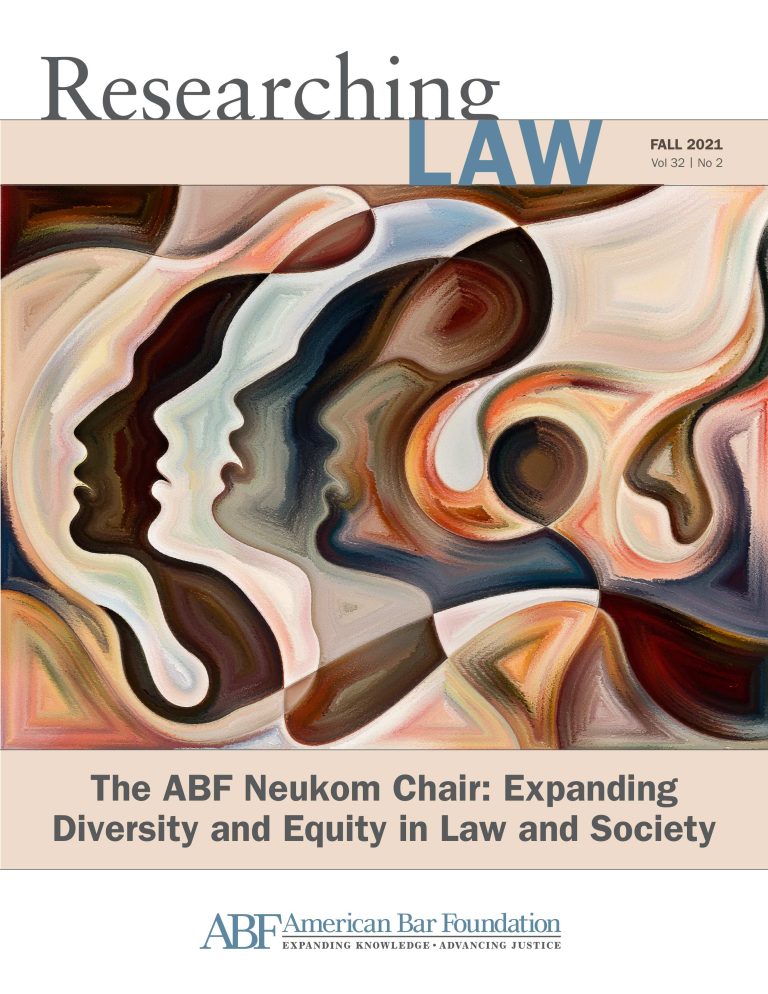
- Newsletters
The ABF Neukom Chair: Expanding Diversity and Equity in Law and Society
Fall 2021
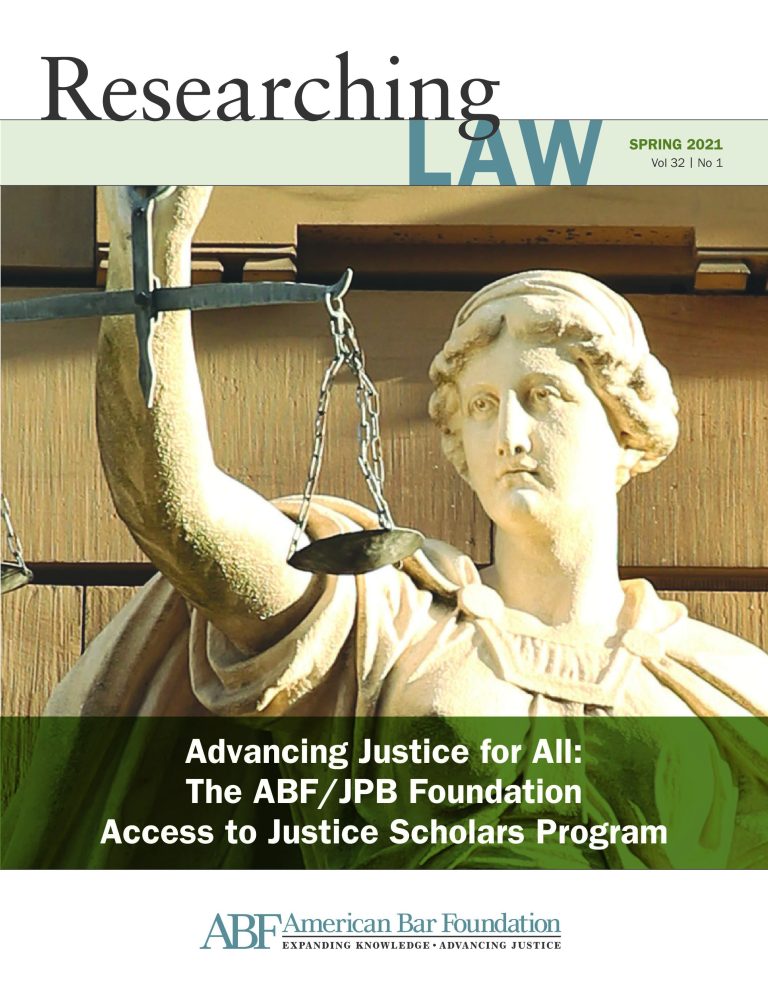
- Newsletters
Advancing Justice for All: The ABF/JPB Foundation Access to Justice Scholars Program
Spring 2021
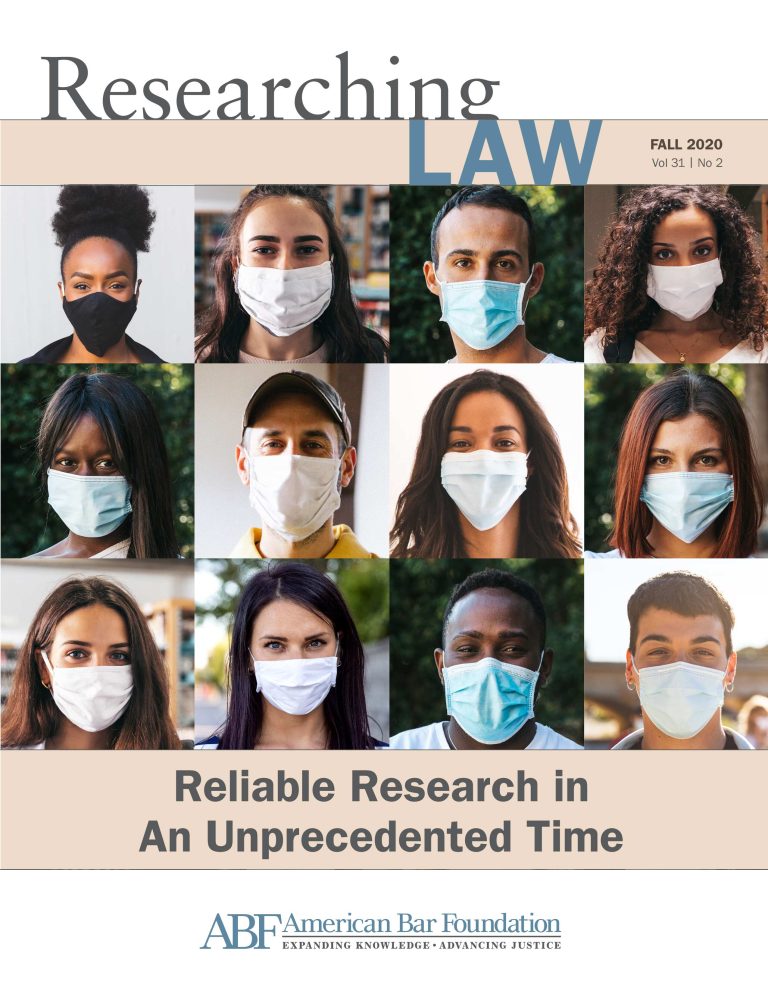
- Newsletters
Reliable Research in an Unprecedented Time
Fall 2020
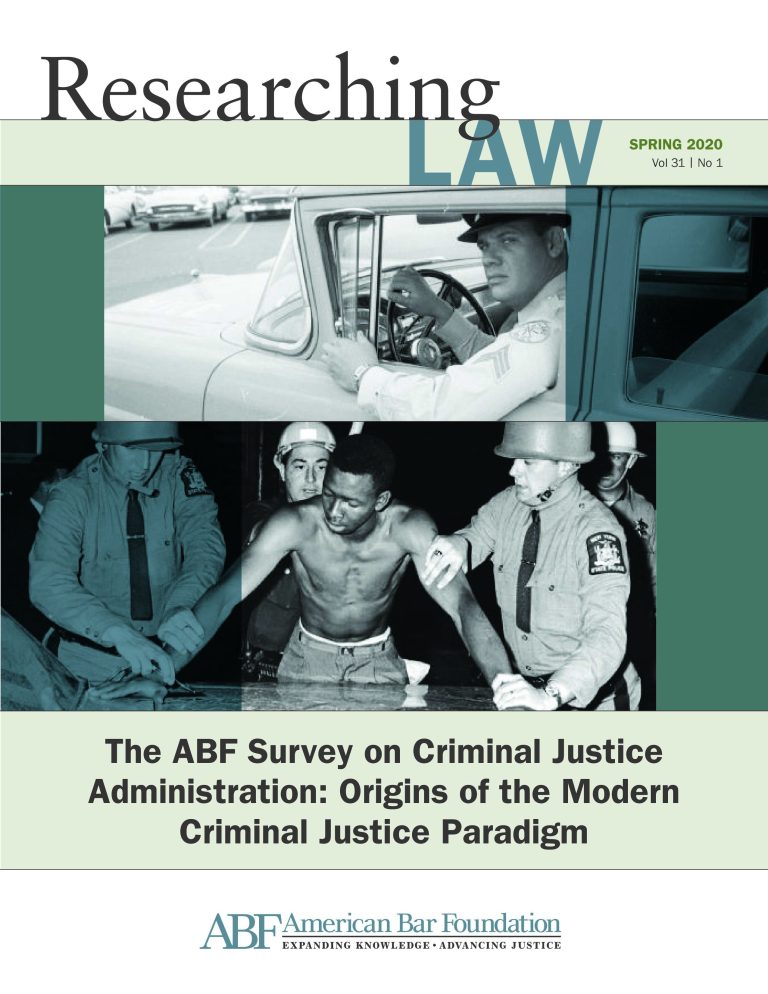
- Newsletters
The ABF Survey on Criminal Justice Administration: Origins of the Modern Criminal Justice Paradigm
Spring 2020
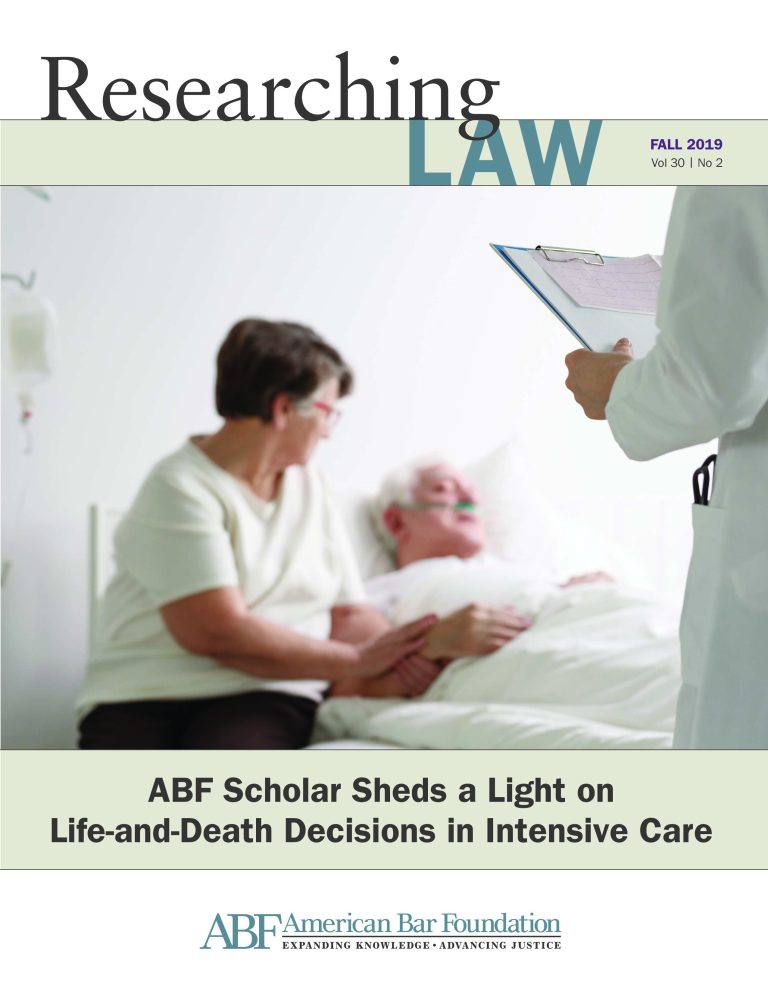
- Newsletters
ABF Scholar Sheds a Light on Life-and-Death Decisions in Intensive Care
Fall 2019
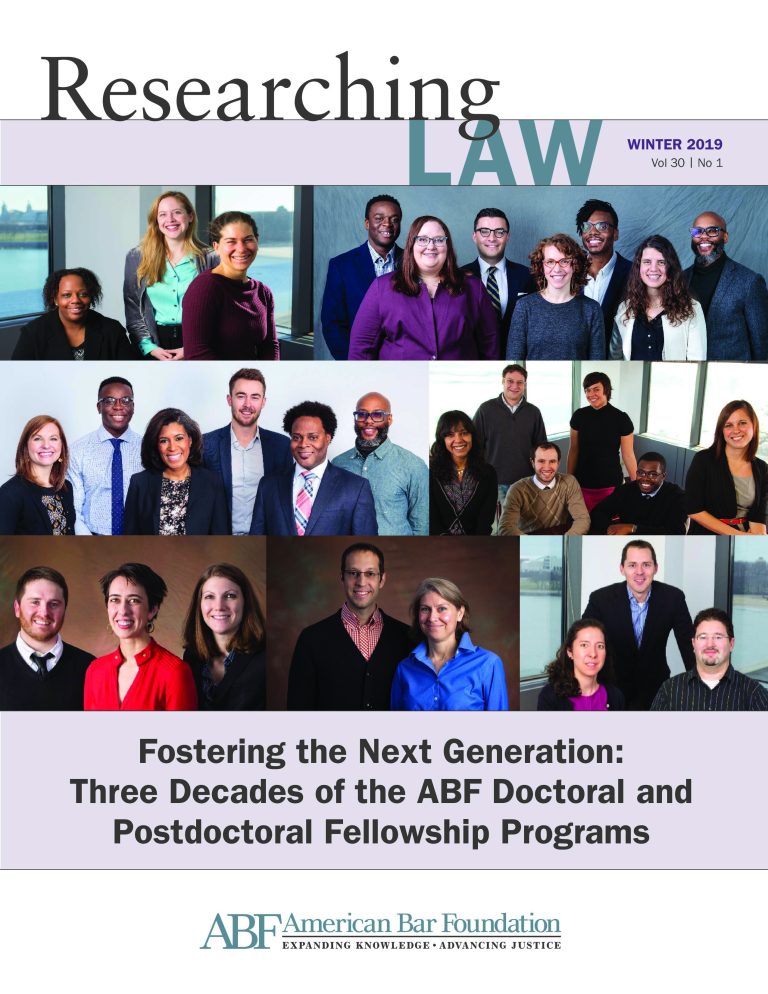
- Newsletters
Fostering the Next Generation: Three Decades of the ABF Doctoral and Postdoctoral Fellowship Programs
Winter 2019
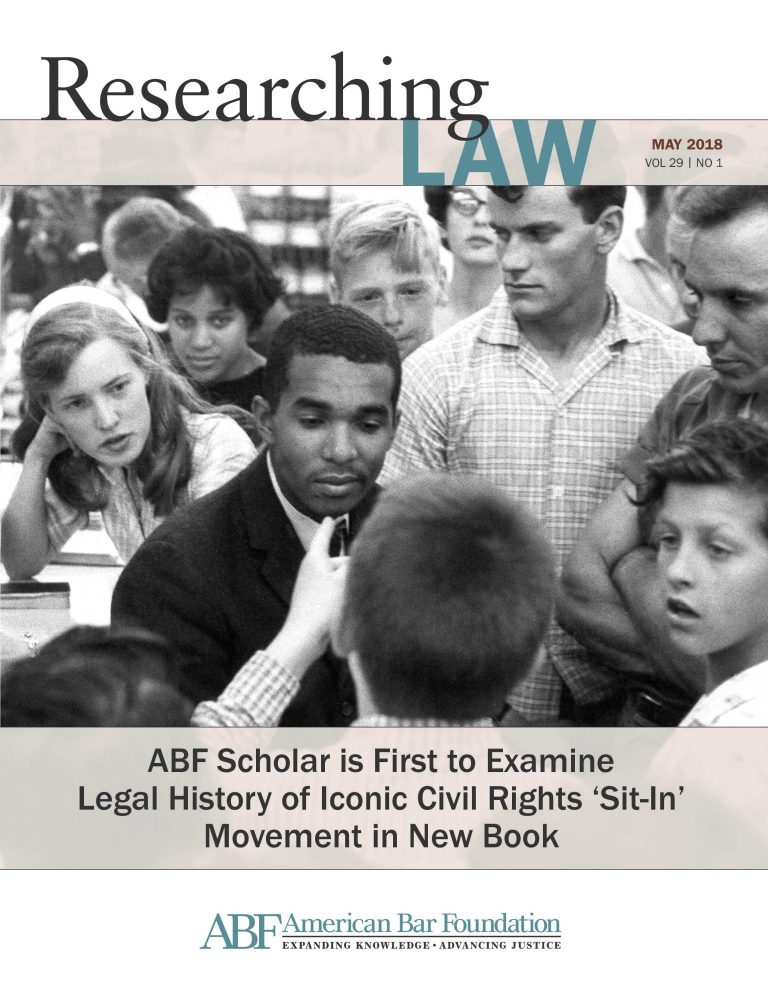
- Newsletters
ABF Scholar is First to Examine Legal History of Iconic Civil Rights 'Sit-In' Movement in New Book
Spring 2018
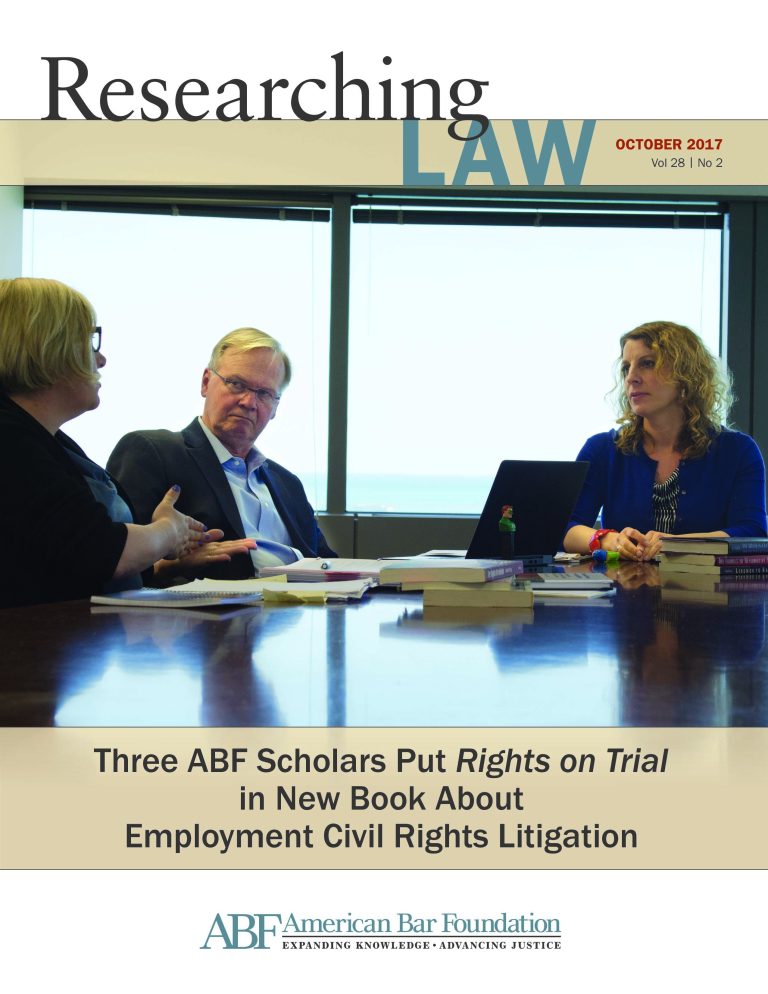
- Newsletters
Three ABF Scholars Put 'Rights on Trial' in New Book About Employment Civil Rights Litigation
Fall 2017
Ellen Berrey
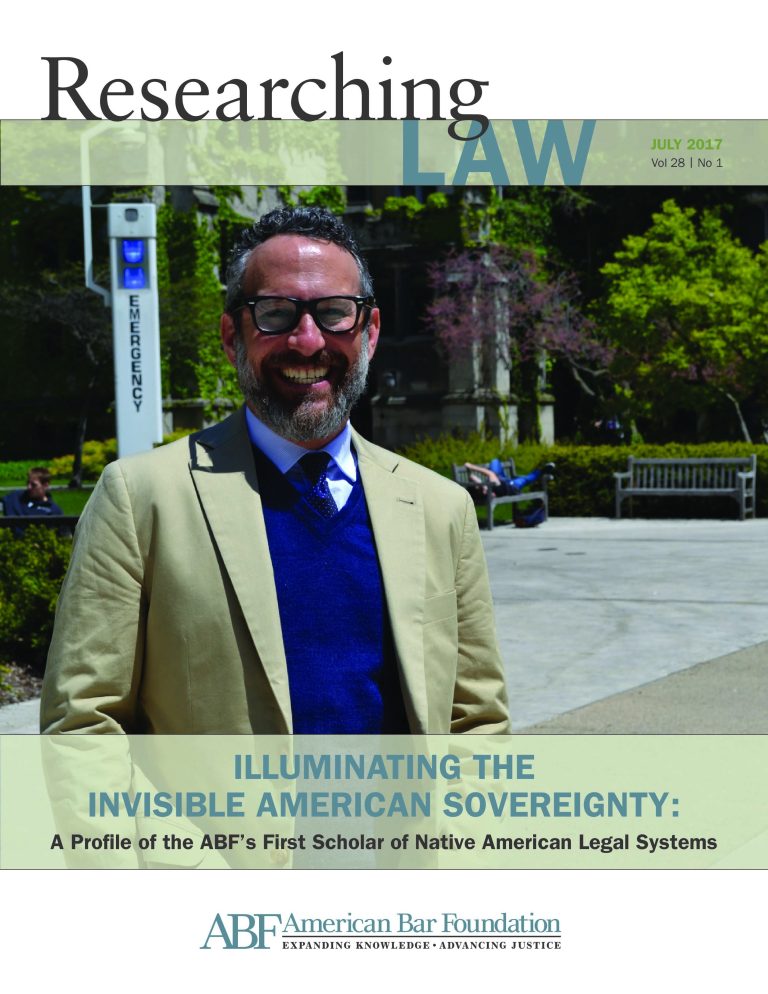
- Newsletters
Illuminating the Invisible American Sovereignty: A Profile of the ABF's First Scholar of Native American Legal Systems
Summer 2017
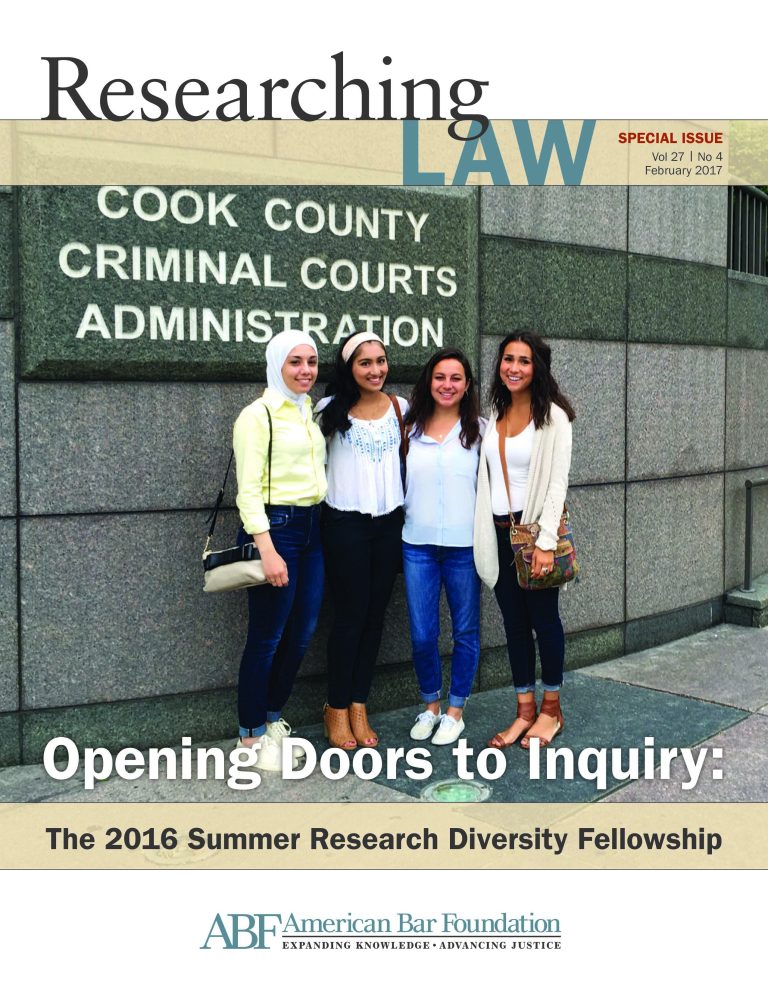
- Newsletters
Opening Doors to Inquiry: The Summer 2016 Summer Research Diversity Fellowship
Winter 2017
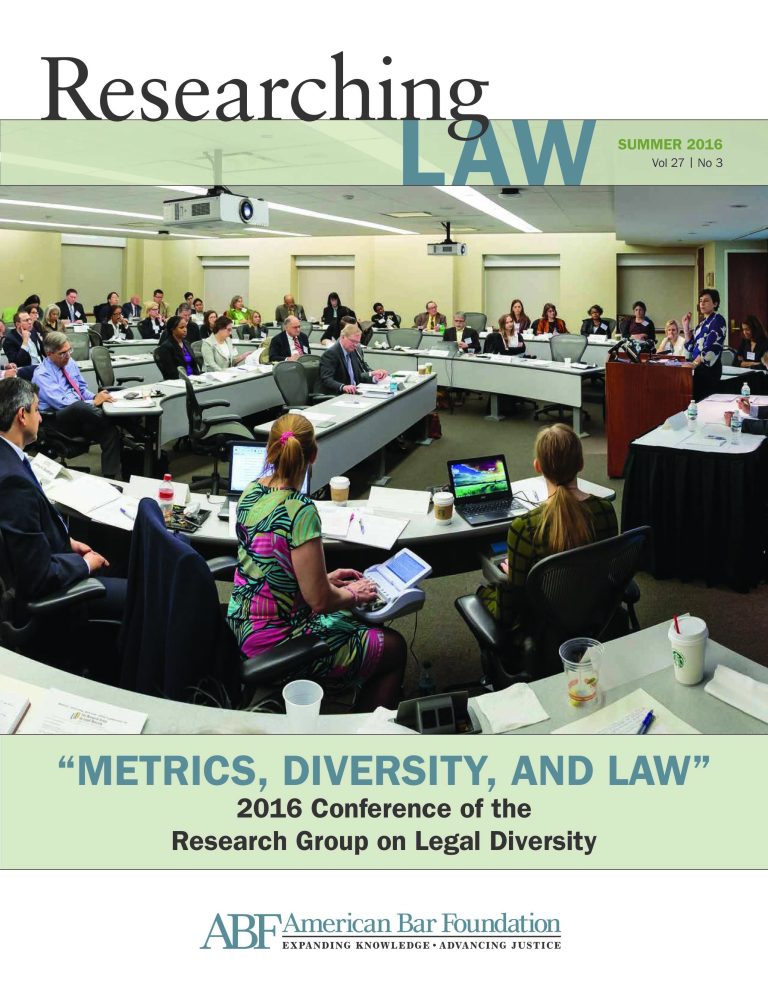
- Newsletters
Metrics, Diversity, and Law: 2016 Conference of the Research Group on Legal Diversity
Summer 2016
